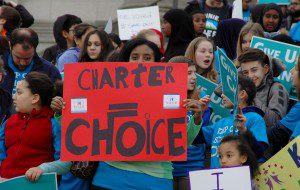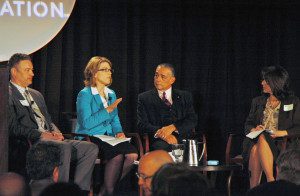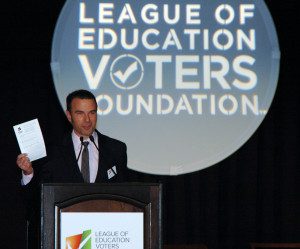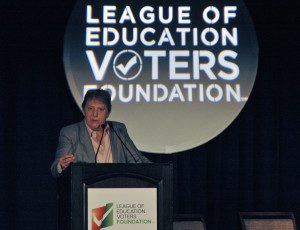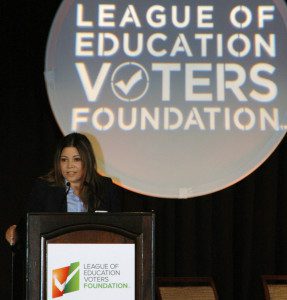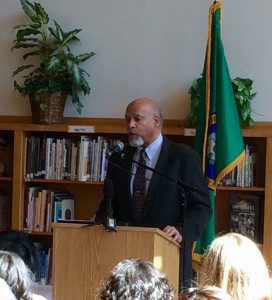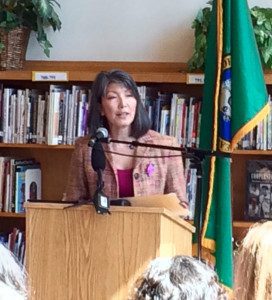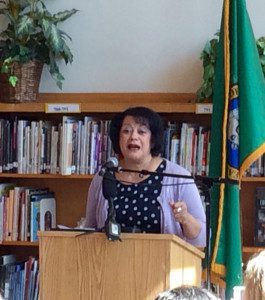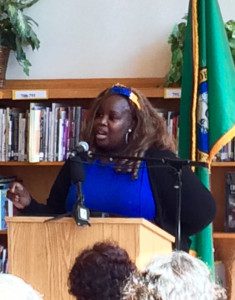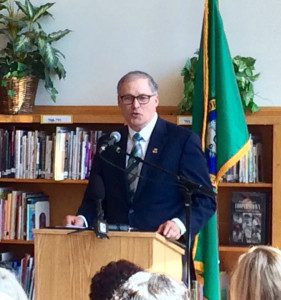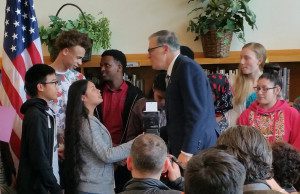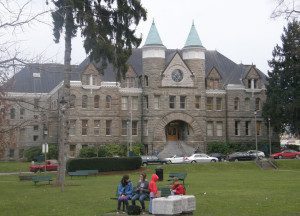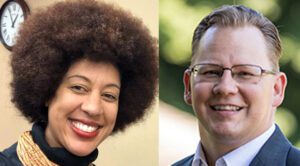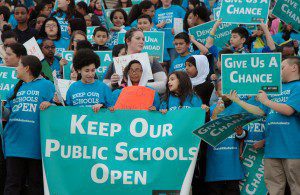Activist of the Month: WA Charters
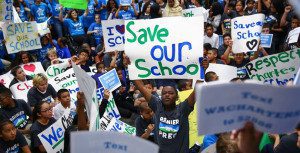
To save public charter schools in the 2016 legislative session, LEV partnered with the Washington State Charter School Association. It took a whole lot of people to do the job. And many stepped up repeatedly to make a call or a bunch of calls, sign a petition or send an email.
Below are some statistics on what WA Charters’ Act Now for Washington Students campaign accomplished. There is no doubt that this campaign had an incredibly robust grassroots effort that was organized, efficient, and one that made an incredible impact on legislators.
The campaign did the following:
From February 8 through March 10, at least ten callers every day made 15 calls each. And other calls happened organically. These calls were made in Seattle, Tacoma, Spokane, East King County, Pasco, Yakima and Walla Walla for a total of 8105 calls.
WA Charters also organized two rallies in Olympia. The November 11 rally brought 400 people on campus and the February 25 rally brought 575 people to the state Capitol.
Approximately 45 people testified in the Senate Early Learning and K-12 Education committee, 70 people testified in the Senate Ways and Means committee and 90 people testified in the House Education committee.
Two parents attended 74 meetings with legislators.
At least five parents visited the state Capitol every day from February 29 to March 9.
Parents made and delivered four dozen cookies to 15 legislative offices.
Parents created and delivered over 300 session survival kits.
Parents created and delivered nearly 200 Thank You kits to legislative aids.
WA Charters mailed over 300 holiday cards to legislative offices and mailed over 300 Valentine’s Day cards to legislative offices.
Parents organically organized six big phone bank nights.
Hundreds of phone calls a day went to the Governor’s office since March 10, the day the bill was passed in the Senate. These calls were made from parents, students, family members and tireless advocates from Seattle, East King County, Pasco, Yakima, Spokane and Tacoma.
Finally, 300 letters were signed and mailed from Yakima asking Governor to sign public charter schools Senate Bill 6194.
LEV would like to extend a huge Thank You to the Washington State Charter School Association and the thousands of volunteers who stepped up for our kids. We couldn’t have done it without you!
